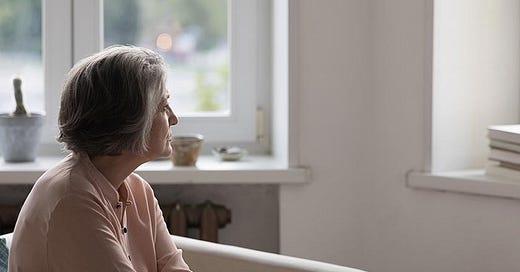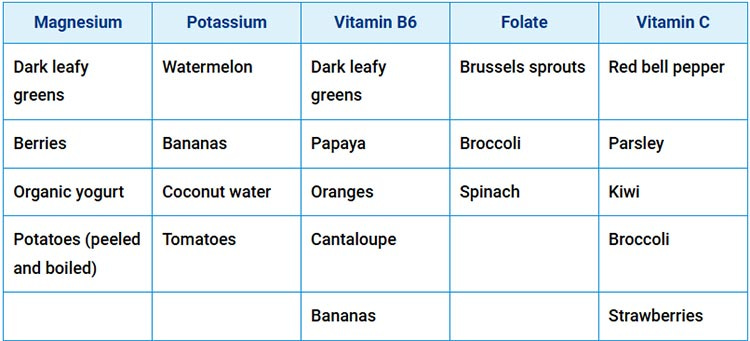Social Isolation Linked to Inadequate Nutrient Intake Among Older Adults
Research shows social isolation in older adults leads to low micronutrient intake, impacting health significantly. Here's what to do to correct these nutritional deficiencies.
STORY AT-A-GLANCE
Social isolation in older adults is linked to increased risk of deficiencies in key micronutrients such as magnesium, potassium, vitamin B6, folate and vitamin C
Deficiencies in these micronutrients can contribute to age-related health issues, emphasizing the importance of adequate dietary intake
Improving dietary quality can lead to better health outcomes for socially isolated older individuals
In addition to healthier foods, removing sources of linoleic acid will contribute to better health
Consider adding exercise into your regular routine, as research has found that it helps ameliorate depression and isolation, especially among older adults
As you age, maintaining a nutritious diet becomes even more important for your overall health. Healthy whole foods provide you with micronutrients that help your body stay strong, support your immune system and keep your brain functioning well.
However, when you’re socially isolated, you’re probably neglecting an adequate amount of these nutrients due to various factors. When this occurs for an extended period, adverse health outcomes will occur, as your body needs a constant supply of nutrients for optimal function.
Do Nutrient Deficiencies Make You Lonelier?
In a study published in Age and Ageing, researchers investigated the link between certain dietary micronutrient deficiencies and loneliness. They hypothesize that the lonelier a person is, the higher their risk of developing health problems.1
To set up the study, the researchers used the English Longitudinal Study, which involved men and women over the age of 50. Beginning in 2002/2003, the researchers slowly gathered data throughout the years, resulting in a sample size of 3,771 individuals.2
Dietary intake was assessed through questionnaires, consisting of around 200 items grouped into 21 categories. Participants reported the food and drinks they consumed, as well as serving sizes, to create accurate analysis. From there, the team computed the macro- and micronutrient intake by comparing the answers to standard U.K. food charts.3
To measure the social isolation and loneliness of the participants, an index was created consisting of criteria such as:4
Frequency of social contact with other relatives
Whether they participated in clubs or not
If they lived alone
Additional questionnaires were also provided to rate the loneliness the participants felt. Their answers were rated on a scale, with higher scores indicating greater loneliness. Overall, their study builds upon previous research that has established a connection between social isolation and poor dietary habits among older adults.5
The Micronutrients Deficient in Older Adults
The researchers identified a gap in the existing literature — the lack of comprehensive data focusing on micronutrient intake, especially among socially isolated older adults. While studies have explored the broader relationship between social isolation and overall diet quality, the specific impact on essential vitamins and minerals remained underexplored.
As most people know, adequate intake of micronutrients plays a key role in promoting healthy aging and preventing a range of health issues. In the study, the authors discovered that the respondents are lacking in five crucial nutrients:
Magnesium
Potassium
Vitamin B6
Folate
Vitamin C
These nutrients play important roles for overall health, such supporting the immune system and ensuring proper brain function. In particular, magnesium and potassium are vital for muscle and nerve function, while vitamins B6, folate (also known as vitamin B9) and C play significant roles in energy metabolism and cognitive health.6
While the study itself didn’t delve into the reasons why micronutrient deficiencies are more common in socially isolated older adults, lead author Andrew Steptoe, Ph.D., has one theory:7
“One explanation for this link is that if you are more isolated, you might not have others around you to provide information about what is healthy and encourage a more varied diet. Older people also tend to stick to diets they know and might not vary their foods as much as they used to.”
Boost Your Micronutrient Intake with Healthy Food
Are you deficient in the micronutrients mentioned in the study? Don’t worry, as modifying your diet will help correct these deficiencies. But before you do, make sure to minimize your intake of linoleic acid (LA), as I believe it to be the most pernicious toxin in the Western diet. It’s commonly found in vegetable oils, ultraprocessed food and beverages.
I recommend keeping your LA intake below 5 grams to protect your health. If you can get it below 2 grams, that’s even better since LA has been associated with systemic inflammation, increased risk of neurodegenerative diseases and lowering your body’s antioxidant capabilities. That being said, I recommend adding these nutritious foods to your diet:
Exercise Also Helps Ward Off Loneliness
In addition to addressing the micronutrient deficiencies mentioned in the study, I also recommend you start exercising regularly to help keep the blues away. There’s substantial research showing that exercise helps boost overall mental health. It also promotes your body image and identity, thereby inspiring you to keep exercising.
As noted in a study8 published in Geriatric Nursing, exercise has a profound effect on both physical and mental well-being of older adults. In particular, the researchers noted a 15% to 30% decrease in likelihood of experiencing loneliness and social isolation when exercising.
Moreover, those who exercised tend to have lower health care expenditures, which also reduces loneliness. In short, the money saved from taking care of yourself contributes to a better mood, since you’re not being worried about hospital expenses.
In another study,9 similar findings were observed. Those who exercised more generally had a better disposition as well as improved quality of life. For example, the researchers noted that exercise improved sleep quality, which is an important factor in mental well-being. Exercise also helped fight cravings from unhealthy habits, such as smoking, thus leading to overall health. In addition, the researchers noted the benefits of exercise on mental health:
“Physical activity and exercise have been shown to improve depressive symptoms and overall mood in people of all ages. Exercise has been implicated in lowering depressive and anxious symptoms in children and adolescents as well.
Pooled research worldwide has revealed that physical exercise is more effective than a control group and is a viable remedy for depression. Most forms of yoga that start with a focus on breathing exercises, self-awareness, and relaxation techniques have a positive effect on depression and well-being.”
Now, what is the best way to exercise? I believe that the optimal approach is by moderate-intensity activities, such as yoga, gardening and recreational bike riding. Doing these in the long run will confer better benefits compared to vigorous exercise, as noted in my interview with Dr. James O’Keefe.
To find out more about this radical approach to exercising, read my article “Nailing the Sweet Spots for Exercise Volume.” There, I discuss O’Keefe’s research, as well as specific strategies to make sure you don’t cross the line into vigorous-intensity exercise, which is detrimental to your health.
Disclaimer: The entire contents of this website are based upon the opinions of Dr. Mercola, unless otherwise noted. Individual articles are based upon the opinions of the respective author, who retains copyright as marked.
The information on this website is not intended to replace a one-on-one relationship with a qualified health care professional and is not intended as medical advice. It is intended as a sharing of knowledge and information from the research and experience of Dr. Mercola and his community. Dr. Mercola encourages you to make your own health care decisions based upon your research and in partnership with a qualified health care professional. The subscription fee being requested is for access to the articles and information posted on this site, and is not being paid for any individual medical advice.
If you are pregnant, nursing, taking medication, or have a medical condition, consult your health care professional before using products based on this content.






